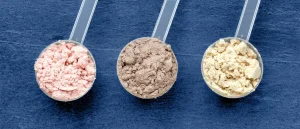Is Berberine Really “Natural Semaglutide”?
A
s the demand for semaglutide—injectable diabetes medications like Ozempic and Wegovy—continues to skyrocket, some people are turning to cheaper, non-prescription options to help them lose weight. At the top of the list: berberine, a plant compound dubbed “natural semaglutide.”
Several Redditors report dropping more than 25 pounds in just weeks after adding berberine to their supplement stack, claiming that their results are comparable to prescription diabetes drugs like Ozempic and Metformin
Berberine can be found over-the-counter at most health food and supplement stores for around $15 to $40 per bottle. This makes it appealing to patients who are turned off by semaglutide side effects like diarrhea and nausea, or who don’t want to drop upwards of $1,000 for Ozempic out-of-pocket.
But is it science-backed or a flash fad? A registered dietitian explains the benefits of berberine and whether it can replace semaglutide.
Berberine for Weight Loss: Natural Semaglutide?
Is berberine as effective for weight loss as Ozempic? That’s comparing apples to kumquats, says registered-dietician and co-founder of The Food Trends Ana Reisdorf, M.S., R.D.
“There are no studies comparing the two treatments for obesity, so we can’t say that berberine works as well as semaglutide,” Reindorf says.
That said, a few limited studies suggest that berberine might help with weight loss.
For example, people with non-alcoholic fatty liver disease who took berberine every day for three months reported significant weight loss in a small 2015 clinical trial (1).
Berberine was found to be just as effective at reducing blood glucose as Metformin, another diabetes drug, in a triple-blind clinical trial of over 200 participants (2). It may lower lipids by reducing the body’s ability to uptake long-chain fatty acids, according to a 2017 study in mice (3).
“Berberine does have a positive influence on blood sugar regulation, insulin sensitivity, and may also work as an anti-inflammatory,” says Reisdorf.
And then there’s this: While berberine isn’t a GLP-1 receptor antagonist like semaglutide, it may promote GLP-1 production, according to a small 2021 mouse study (4). However, the study authors point out, more human studies are needed before experts will recommend berberine as a weight loss or diabetes management drug.
Is Berberine Safe?
While berberine supplements may be safe for most adults, it may cause digestion problems and allergic reactions in some people, says Reisdorf. She notes that this may be one of the reasons for rapid weight loss.
But there are a few caveats to consider. First, berberine is antimicrobial, so taking too high a dose may disrupt your gut microbiome (5).
Berberine does have a positive effect on blood sugar regulation, but taking it in conjunction with other medications or diets might cause a dangerous drop. On an episode of the Huberman Lab podcast, neuroscientist Andrew Huberman, Ph.D., recommends avoiding berberine while intermittent fasting to prevent this effect. He also warns that it can be difficult to “titrate” berberine—meaning you may have difficulty finding the correct dose for the maximum benefits with minimum side effects.
Most clinical trials on humans use doses between 500 mg and 1,500 mg, which researchers have found to be safe for adults.
Berberine may interact with certain prescription medications, so consult with your doctor before adding it to your supplement stack.
References
1. Rashkooli, et al (2015). The Effect of Berberis Vulgaris Extract on Transaminase Activities in Non-Alcoholic Fatty Liver Disease.
2. Sanjari, et al (2020). Safety and efficacy of Berberis integerrima root extract in patients with type 2 diabetes. A parallel intervention based triple blind clinical trial.
3. Sun, et al (2017). Orally Administered Berberine Modulates Hepatic Lipid Metabolism by Altering Microbial Bile Acid Metabolism and the Intestinal FXR Signaling Pathway.
4. Wang, et al (2021). Berberine activates the β-catenin/TCF4 signaling pathway by down-regulating miR-106b to promote GLP-1 production by intestinal L cells.
5. Zhang, et al (2021). Effects of Berberine on the Gastrointestinal Microbiota.










